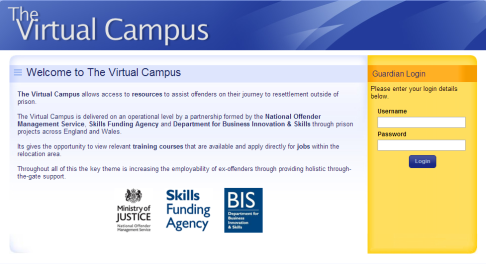On Monday I was at a meeting to discuss the Virtual Campus. For an idea of what this is the Prisoner’s Education Trust website has a handy overview; in essence it is a way of delivering screen-based resources over a secure internet connection to learners in prison. The content is hosted on central servers rather than the current topography where individual prisons have their own education server and they manage content locally. They will still do this but can also access the VC and a broader range of material. There was a lot of geeky chat, and I can get as geeky as the next geek, but what I found most interesting is the way some content is being created.
While much of the stuff is provided by external agencies; Learn Direct, DWP, JC+ and the learning providers who deliver education in prison there is now a new strand. Content is being created by users. Who better to write units about some of the issues prisoners might face than other prisoners? Not exactly OERs but an interesting way to develop transferable skills and provide “fit for purpose” resources. I hope to see some of this content soon and I’ll see if any is available to the wider world.



 Just thought I’d tie up a hectic week and try to tease out some thoughts.
Just thought I’d tie up a hectic week and try to tease out some thoughts.
